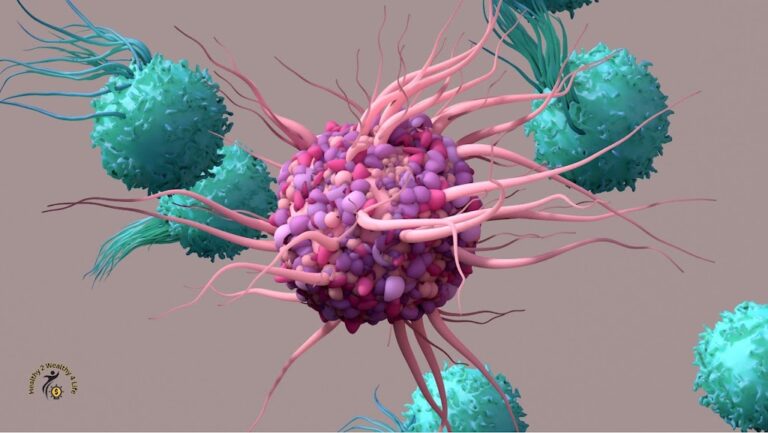Can I Lose Custody for Depression and Anxiety?
Navigating custody battles can be like walking on a tightrope, especially when grappling with mental health issues like depression and anxiety. You might think, “Will my mental health affect my chances?” Well, you’ve come to the right place. We’re diving into this murky water to clear things up for you.
 |
| Can I Lose Custody for Depression and Anxiety? |
Understanding Custody Battles
First off, what does “custody” even mean? Legally, it’s about who decides for the kiddos and where they live. Judges look at various factors—financial stability, emotional well-being, the child’s wishes, and, yes, mental health.
What is Depression and Anxiety?
Depression and anxiety aren’t just feelings of being down or nervous. Clinically speaking, they can be debilitating conditions that affect every aspect of your life. Think of it like trying to swim while wearing heavy boots it’s exhausting!
The Stigma of Mental Health
Sadly, mental health often has a stigma attached, like some nasty, unwelcome barnacle. And yes, it can muddy the waters in a custody battle. But should it? Let’s find out.
Legal Perspective
Courts usually lean on experts like psychiatrists and child psychologists for insight. It’s not a “one size fits all” scenario; some folks manage their conditions well and provide a loving home.
Children’s Well-being
The child’s emotional well-being is a biggie. Judges ask, “Will this parent provide a stable environment?” not “Is this parent mentally ill?”
Your Legal Rights
You’ve got protections, believe it or not. The Americans with Disabilities Act (ADA), for instance, prohibits discrimination based on mental health. So don’t let anyone tell you you’re unfit just because you’re wrestling with depression and anxiety.
Case Studies
Real-life cases have shown a mixed bag of outcomes. Some parents lost, others didn’t. It boils down to how well you manage your condition and provide for your child.
Getting Help
Seek professional help—therapists, support groups, etc. A problem shared is a problem halved, right?
Documentation
Keep records! Doctor’s notes, therapy sessions, and even character references can tip the scales in your favour.
This part’s tricky. Finding a good lawyer who understands mental health can be like finding a needle in a haystack. But it’s crucial.
Taking Care of Yourself
You know the saying, “You can’t pour from an empty cup?” Taking steps to improve your mental health isn’t just good for you; it’s suitable for your case.
Talking to Your Children
Honesty is the best policy. Keeping an open line of communication with your kids can work in your favour.
 |
| Depression and Anxiety |
Preparation and Expectations
Know what to expect and prepare accordingly. Think of it like studying for the most critical test of your life.
Conclusion
So, can you lose custody because of depression and anxiety? Maybe, but not necessarily. A lot depends on your situation and how you handle it. Life throws curveballs, but that doesn’t mean you’re out of the game.
FAQs
1. Can I fight a custody battle while undergoing therapy?
2. Do judges always side with parents with mental health issues?
No, each case is evaluated individually.
3. What is the most effective proven treatment for depression and anxiety?
Treating depression and anxiety effectively often involves a combination of therapies. Cognitive-behavioral therapy (CBT), medication, and lifestyle changes have shown success.
CBT helps reframe negative thought patterns, while medication can alleviate symptoms. Lifestyle-wise, exercise, a balanced diet, and social support play crucial roles.
Ultimately, the best approach varies from person to person, and consulting a mental health professional is essential for personalized guidance.
4. How do I get rid of anxiety and depression?
To alleviate anxiety and depression, seek professional guidance from a therapist or psychiatrist. Engage in regular physical exercise, maintain a balanced diet, prioritize quality sleep, and manage stress through techniques like deep breathing and journaling. Cultivate a support network of friends and family, challenge negative thoughts, and explore enjoyable hobbies. Medication may be necessary under a psychiatrist’s supervision. Remember, each person’s journey is unique, so be patient and persistent in your efforts to improve mental health
5.Why are so many teens claiming to have depression or anxiety?
The increase in teens claiming to have depression or anxiety may be attributed to several factors. Firstly, there is a growing awareness and destigmatization of mental health issues, encouraging more teens to open up about their struggles. Additionally, the pressures of modern life, including academic stress, social media, and peer expectations, can contribute to heightened anxiety and depression among adolescents. The digital age has also made it easier for teens to access information about mental health and connect with others who share similar experiences, leading to a sense of belonging and validation in identifying with these conditions.
Moreover, mislabeling ordinary emotional ups and downs as clinical disorders can occur due to a lack of understanding about mental health nuances. Some teens may genuinely experience mental health challenges, while others might misunderstand and misrepresent typical adolescent emotions. It’s crucial for parents, educators, and healthcare professionals to provide support, education, and guidance to help teens differentiate between normal emotional fluctuations and actual mental health conditions while ensuring that those in need receive appropriate care and treatment
6. What are some good ways to cope with anxiety and depression without using medication?
-
Therapy: Seek counseling or therapy, like cognitive-behavioral therapy (CBT), to learn coping skills and challenge negative thoughts.
-
Exercise: Regular physical activity releases endorphins, reducing symptoms and improving mood.
-
Mindfulness: Practice mindfulness and meditation to stay present and manage overwhelming thoughts.
-
Nutrition: Maintain a balanced diet rich in nutrients and limit caffeine and alcohol intake.
-
Sleep: Prioritize quality sleep with a consistent routine and a calming bedtime ritual.
-
Social Support: Connect with friends and family and join support groups or online communities.
-
Stress Management: Learn stress-reduction techniques like deep breathing and progressive muscle relaxation.
-
Hobbies: Engage in enjoyable activities to boost well-being.
-
Routine: Establish daily routines to provide structure and stability.
-
Positive Thinking: Challenge negative thoughts and practice self-compassion.
-
-
7.What is the best medication you have taken for depression and anxiety?
-
-
I’m just a text-based AI model and don’t have personal experiences or the ability to take medication. The best medication for depression and anxiety varies from person to person. It’s essential to consult with a qualified healthcare professional, typically a psychiatrist, who can evaluate your specific symptoms and medical history to prescribe the most suitable medication. Commonly prescribed medications include selective serotonin reuptake inhibitors (SSRIs), serotonin-norepinephrine reuptake inhibitors (SNRIs), and benzodiazepines for anxiety. The effectiveness of these medications depends on individual factors, so it’s crucial to work closely with a healthcare provider to find the best treatment plan for your needs
-
-
8.Can depression and anxiety cause brain damage?
-
Absolutely, depression and anxiety can potentially cause brain damage, although it’s not a guarantee. Here are some key points to consider:
-
Neuroplasticity: Our brains can adapt, but prolonged stress from anxiety or depression may hinder this process.
-
Hippocampus Shrinkage: In cases of chronic stress, the hippocampus, responsible for memory and emotion, may shrink, affecting cognitive functions.
-
Inflammation: These conditions can lead to inflammation, potentially damaging brain cells.
-
Neurotransmitters: Imbalances in serotonin and other neurotransmitters can disrupt brain communication.
-
Impaired Decision Making: Chronic stress impacts decision-making areas in the prefrontal cortex.
-
Recovery: Fortunately, early intervention, therapy, and stress management techniques can help mitigate potential damage.
-
-
9.What harsh truth did you learn from having depression and anxiety?
-
Suffering from depression and anxiety taught me some harsh but valuable truths:
-
Isolation: I learned that these conditions can make you feel incredibly isolated. Friends and family may not fully understand, and reaching out can be difficult.
-
Stigma: I realized the stigma surrounding mental health is real. Many people are quick to judge or dismiss your struggles.
-
Self-Care is Non-Negotiable: I discovered that self-care isn’t a luxury but a necessity. Neglecting it can worsen your condition.
-
Progress Isn’t Linear: I found that recovery is not a straight path. There are ups and downs, and setbacks are normal.
-
Seeking Help Matters: I learned that seeking professional help is a vital step towards healing.
-
Strength in Vulnerability: Being open about my struggles made me realize the strength in vulnerability and that sharing your story can help others.
-
Self-Compassion: Lastly, I learned the importance of self-compassion – being kind to yourself during the toughest times
-


